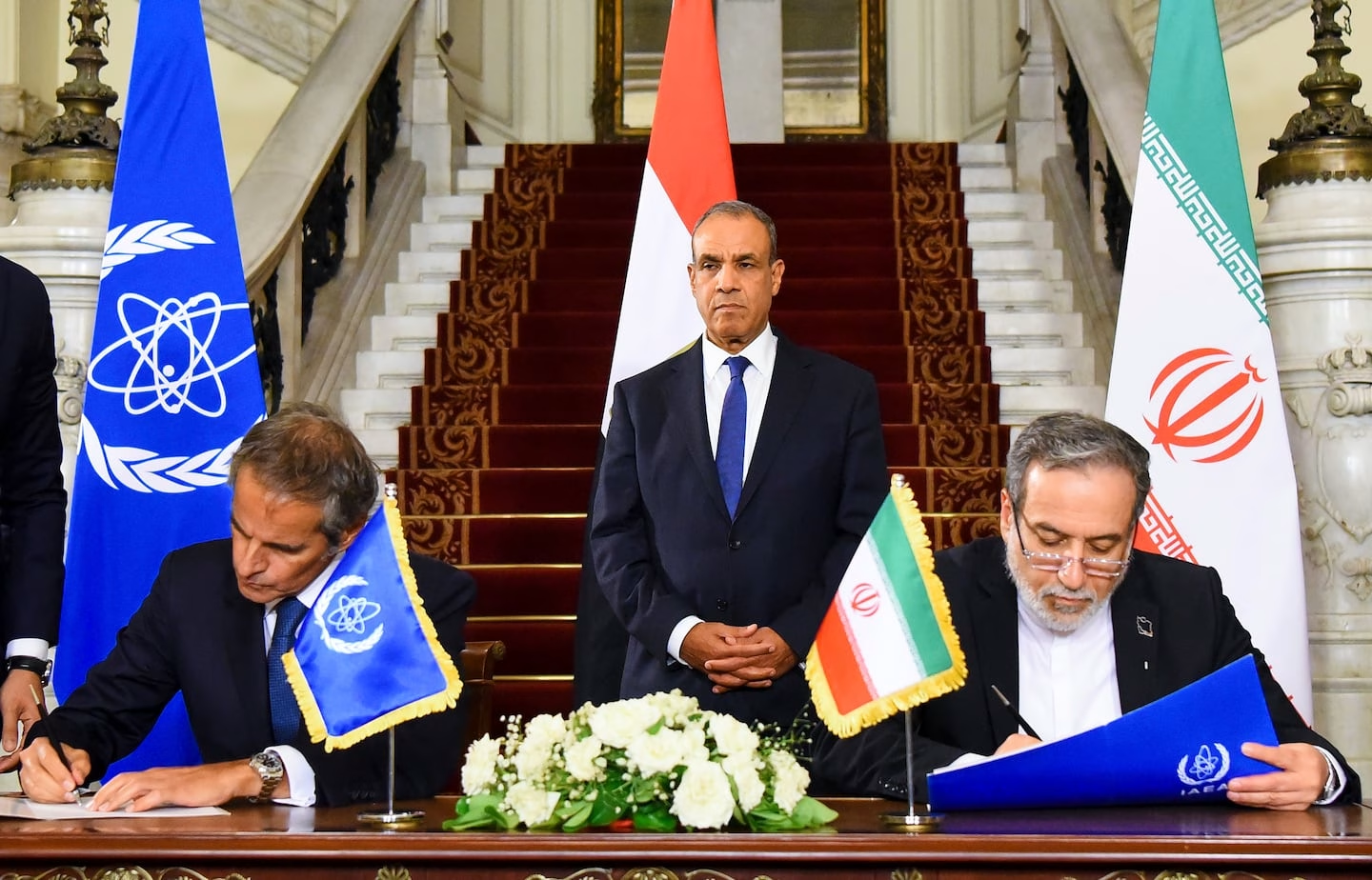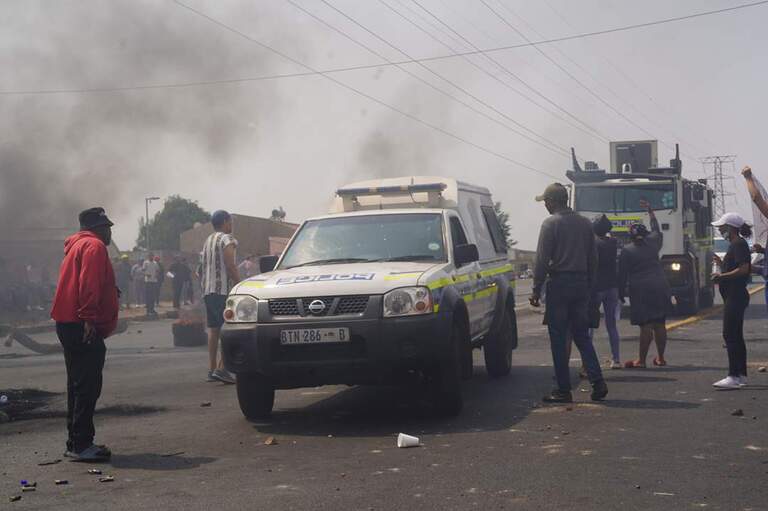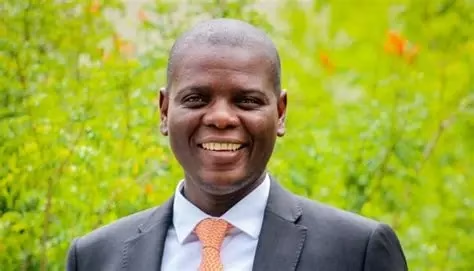
Iranian Foreign Minister Abbas Araghchi and IAEA Director General Rafael Grossi sign a framework deal in Cairo to relaunch nuclear inspections, with Egypt mediating talks: Image: The Boston Globe.
(The Post News)– Iran and the International Atomic Energy Agency (IAEA) signed a new accord on Tuesday in Cairo that could resume stalled inspections of Iran’s nuclear program. The framework accord follows weeks of escalating tensions after Israeli and US. air trikes against Iranian nuclear sites in June.
The news follows talks hosted by Egypt’s Foreign Minister Badr Abdelatty, which featured Iranian Foreign Minister Abbas Araghchi and IAEA Director General Rafael Grossi. In a press conference, Grossi called the deal “a step in the right direction” and stressed the importance of “indispensable” inspections according to the Treaty on the Non-Proliferation of Nuclear Weapons (NPT).
Egypt’s Role as Mediator
Egypt proved itself a powerful diplomatic intermediary. Egypt’s president, Abdel-Fattah el-Sissi, welcomed the agreement, crediting Cairo’s “intensive” mediating efforts for its achievement. He affirmed Egypt’s dedication to non-proliferation while demanding that all members of the NPT have the right to the peaceful use of nuclear energy.
Iran’s legislature suspended collaboration with the IAEA on July 2, weeks after Israeli and U.S. attacks had badly damaged Iranian facilities for enriching uranium. Only one monitored facility has operated since then, the Bushehr Nuclear Power Plant, with inspectors monitoring as a fuel replacement operation was conducted there in August.
Araghchi announced that the new accord addresses Iran’s security concerns and sets technical terms for resumed collaboration. But he also told reporters that Iran will promptly end the deal with IAEA if any harsh action is taken, such as the reinstatement of U.N. sanctions.
The Cairo breakthrough comes as France, Germany, and the United Kingdom are on the verge of restoring U.N. sanctions on Iran under the so-called “snapback” mechanism of the 2015 nuclear deal. The E3 triggered the process on August 28, giving Iran 30 days to return to compliance or face sanctions.
European governments said they would discuss a possible extension of the deadline once Iran provides full inspection access, re-engages in nuclear talks with the U.S., and provides an open audit of its enriched uranium stockpile. EU foreign policy chief Kaja Kallas expressed cautiously optimistic views on the Cairo deal on Tuesday. “This could be a milestone in nuclear diplomacy, provided that Iran follows it up as soon as possible,” she posted on X.
Concerns Over Iran’s Uranium Stockpile
The IAEA has not been able to verify Iran’s enriched uranium stockpiles since June 13, when airstrikes from Israel sparked the 12-day war. The IAEA secret report put Iran’s reserves at 440.9 kilograms of 60% enriched uranium. As 90% material, it would be enough to fuel ten nuclear bombs, the agency estimates.
Although stockpile enrichment is different from weaponization, there is a very real security risk because there is no oversight, according to experts. Iran is required to submit a “special report” on the status of its nuclear fuel after considerable disruptions under its safeguards agreement, but diplomats say that Tehran has not submitted it since June.
Grossi said the Cairo agreement contains “modalities” for inspections, including at bombing targets during the war, but would not provide details. Diplomats cautioned that the agreement might fail if Tehran delays implementation or Western powers resume imposing sanctions.
Meanwhile, the accord de-escalates short-term tensions and provides space for diplomacy. Whether it can ultimately stave off sanctions snapback and reinstate the full 2015 nuclear accord is uncertain.



